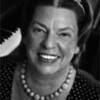J. J. Scarisbrick
Author of Henry VIII
About the Author
Works by J. J. Scarisbrick
Law and Government under the Tudors: Essays Presented to Sir Geoffrey Elton (1988) — Editor — 10 copies
English Monarchs: William The Conqueror, Henry VIII, Edward The Confessor, Henry VII, Henry II, Edward IV, Richard III… (1964) 7 copies
Selly Park and beyond : the story of Geneviève Dupuis and the Congregation of the Sisters of Charity of St. Paul the… (1997) 2 copies
Henry the Eighth 1 copy
English Monarchs Henry VII 1 copy
Associated Works
Historical perspectives : studies in English thought and society, in honour of J. H. Plumb (1974) — Contributor — 6 copies
Tagged
Common Knowledge
- Legal name
- Scarisbrick, John Joseph
- Birthdate
- 1928-10-06
- Gender
- male
- Nationality
- UK
- Birthplace
- London, England
- Places of residence
- Learnington Spa
- Education
- Christ's College, Cambridge
John Fisher School - Occupations
- historian
professor - Organizations
- University of Warwick
LIFE
Members
Reviews
Lists
Awards
You May Also Like
Associated Authors
Statistics
- Works
- 11
- Also by
- 1
- Members
- 676
- Popularity
- #37,362
- Rating
- 3.9
- Reviews
- 10
- ISBNs
- 23
- Languages
- 1













